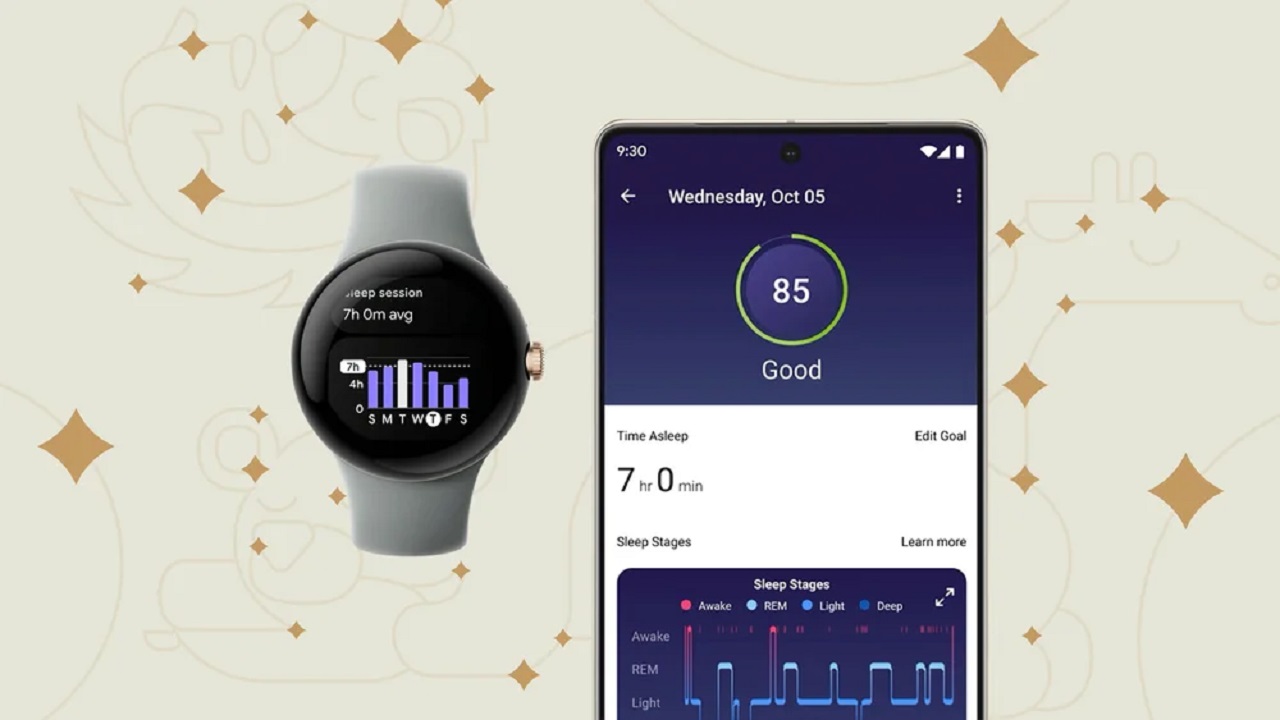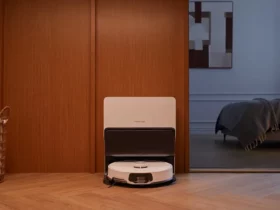No more “April sweet sleep”, now March is the month dedicated to sleep with the World Sleeping Month and Google intends to celebrate it by publishing the six ways the artificial intelligence that hides behind Fitbit (and its other devices) monitors the sleep cycle of users to sleep better.
Six ways Fitbit’s AI works to track your sleep cycle
There are more and more devices that monitor sleep cycles and for Google Fitbit he has been doing this for several years. Sleep health, in fact, represents a focal point that should not be underestimated and Dr Conor Heneghan he knows very well.
A scientist and sleep health researcher at the famous multinational corporation, Heneghan and his team are responsible for developing new features useful for tracking your sleep cycle with Fitbit and Pixel Watch.
And if progress has been made in recent years, the merit is above all of the artificial intelligencewhich operates in six different ways using algorithms to map signals and useful information such as heart rate and steps.
“We can combine all of this information together to get really detailed insights into sleep,” said Dr. Heneghan.
How exactly does artificial intelligence work?
Sleep tracking (Sleep Tracking)
Fitbit’s sleep tracking algorithm tries to estimate, based on the ranges of movement and heart rate, which stage of sleep the user is in and for how long. The information is then sent to the Fitbit cloud site.
Sleep profile (Sleep Profile)
This feature is typical of Fitbit Premium and is based on data from at least two weeks, looking at what commonly happens while you sleep and then providing a more holistic analysis of your sleep behavior over time. Each profile is associated with a different animal based on their sleeping habits.
Sleep Score (Sleep Score)
Sleep tracking generates a score that you record every morning ranging from 0 to 100.
“Your Sleep Score is the first thing you see in your Fitbit app,” said Conor Heneghan. The main factors include the duration of rest, the percentage of deep sleep and REM sleep.
Detection of cough and snoring (Cough and snore detection)
Second-generation Nest Hub and Pixel 7 have cough and snore detection, based on what is commonly called an “acoustic footprint”, mapping the different frequencies. For example, coughing has certain sound frequencies and characteristics, while snoring has its own unique sound profile.
This algorithm not only recognizes these sounds, but also determines the difference between them and how they affect the quality of sleep.
Clever clock (Smart Wake)
It is an algorithm capable of understanding when you are still in the deep sleep phase and when it is appropriate to start waking up the user. As deep sleep data decreases, Smart Wake will wake you within 30 minutes of that time, with a vibration gentle enough to wake you gently.
Sleep tracking (Sleep Sensing)
Second-generation Nest Hub devices are equipped with Sleep Sensing, which uses Motion Sense with low-energy radar, sound, light and temperature sensors to detect movement and breathing during the night. In the morning, Sleep Sensing will provide insights based on data collected during your night’s sleep cycle.
Google for the healthcare world
Google once again places itself at the service of science and the quality of life of its consumers, collaborating with medical teams and forging very important partnerships not only for monitoring the sleep cycle with Fitbit or other devices.
For example the videos of the YouTube channel of theHarvard Medical School Continuing Education will allow healthcare personnel to acquire credits for continuing education.
In addition, Google is also collaborating with the Accreditation Council for Continuing Medical Education to provide best practices for video and content production to follow the same path inaugurated by the Harvard Medical School Continuing Education.
Last but not least, AI Duplex has allowed hundreds of thousands of healthcare professionals in the US to verify their information, while later this month it will finally be made available, free of charge, Health Metrics Dashboard di Fitbit.















Leave a Reply
View Comments